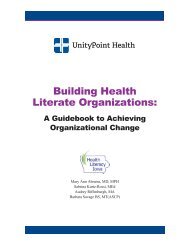the-global-island-irelands-foreign-policy
the-global-island-irelands-foreign-policy
the-global-island-irelands-foreign-policy
You also want an ePaper? Increase the reach of your titles
YUMPU automatically turns print PDFs into web optimized ePapers that Google loves.
16<br />
OUR PEOPLE<br />
Serving our<br />
People Abroad<br />
Consular Assistance<br />
Irish people are travelling more<br />
frequently, for shorter periods, to more<br />
diverse locations with over six million<br />
visits abroad in 2013. This is a threefold<br />
increase over two decades and<br />
<strong>the</strong> number will continue to rise. With<br />
more people travelling for business or<br />
leisure to less secure parts of <strong>the</strong> world,<br />
<strong>the</strong>re is growing demand for advice<br />
and assistance.<br />
The Department of Foreign Affairs and<br />
Trade dealt with tens of thousands of<br />
requests for assistance in 2014, this<br />
included over 1,650 serious consular<br />
emergencies and cases of Irish people<br />
injured, hospitalised or dying abroad.<br />
In an uncertain and often unstable<br />
<strong>global</strong> environment, complex<br />
emergencies can affect Irish citizens<br />
in several places at one time, requiring<br />
a very high level of preparedness<br />
and flexibility. For example, in 2011<br />
Ireland mounted simultaneous<br />
consular responses to <strong>the</strong> Christchurch<br />
earthquake in New Zealand, <strong>the</strong><br />
earthquake and tsunami in Japan and<br />
evacuated around 400 Irish citizens<br />
from Libya.<br />
A stand-by Consular Crisis Centre in<br />
Dublin can be staffed and activated in<br />
an emergency. Flexible arrangements<br />
with EU partners can assist in<br />
attending to consular needs in a more<br />
responsive and coordinated manner,<br />
for example working closely with a<br />
number of EU partners on <strong>the</strong> 2011<br />
Libya evacuation, with <strong>the</strong> Dutch in<br />
Syria and with <strong>the</strong> British in West<br />
Africa in response to <strong>the</strong> Ebola crisis.<br />
More is being done to communicate<br />
with our citizens travelling abroad in a<br />
clear and timely fashion, in particular<br />
through increased use of technology<br />
and social media. An online registration<br />
service allows travellers to register<br />
<strong>the</strong>ir contact details prior to travel, so<br />
that contact can be made in <strong>the</strong> event<br />
of an emergency or crisis situation.<br />
Travel information and advice are<br />
regularly updated on Department and<br />
embassy websites and our travel advice<br />
Twitter feed.<br />
As Irish citizens are travelling at a<br />
younger age, travel advice needs to be<br />
more accessible to <strong>the</strong>se age groups<br />
to create greater awareness and<br />
understanding of <strong>the</strong> scope, limits and<br />
extent of consular assistance.<br />
A new and more complex consular<br />
landscape is emerging, seen in <strong>the</strong><br />
growth in international parental child<br />
abduction, increasing numbers of<br />
dual-citizens beyond <strong>the</strong> traditional<br />
diaspora countries, and new<br />
challenges such as cases involving<br />
forced marriage.<br />
@dfatravel.<br />
My Job<br />
Brendan Maloney<br />
Duty Officer, Dublin<br />
In addition to my current role in <strong>the</strong><br />
Office of <strong>the</strong> Secretary General, I also<br />
participate in <strong>the</strong> Departmental<br />
Duty Officer rota which deals with<br />
emergencies abroad that arise<br />
overnight or at <strong>the</strong> weekend. Most<br />
are requests for consular assistance,<br />
with calls from all over <strong>the</strong> world.<br />
Each situation is different. As <strong>the</strong><br />
first point of contact, I may be<br />
required to deal with a medical<br />
emergency abroad (accidents, injury,<br />
illness, or death), cases where Irish<br />
citizens are arrested or detained<br />
abroad (or who are victims of crime,<br />
stolen passports, etc), reports of<br />
missing persons and child abduction<br />
cases. Successful management of a<br />
case involves swift, effective liaison<br />
with <strong>the</strong> relevant Irish embassy,<br />
consulate or honorary consul and<br />
with <strong>the</strong> appropriate authorities in<br />
Ireland, such as An Garda Síochána.



